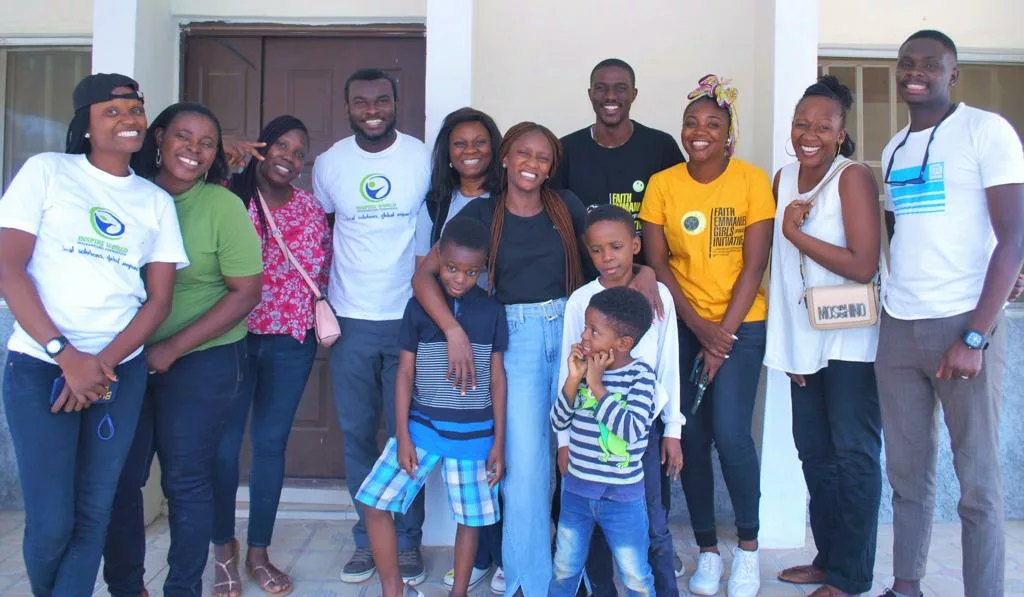Many Nigerians experience inequitable access to food, leading to undernourishment, stunted growth, and wasting, particularly in children. Poverty, exacerbated by gross unemployment and the inability of a majority of people to feed themselves and their families, are some of the main culprits of the hunger issues in the country. With the increasing hike in food prices and the stagnant income of the average Nigerian, it has become difficult for families to feed. Many widows with four to five children are burdened with the responsibility of providing for their children.
In reducing the Global Hunger Index in which Nigeria ranks 103 out of 127, a Non-governmental organisation,
Inspire World International Foundation has launched ‘𝐓𝐡𝐞 𝐙𝐄𝐑𝐎 𝐏𝐫𝐨𝐣𝐞𝐜𝐭’ aimed towards achieving no poverty and zero hunger in Nigeria by providing a soup kitchen, food bank and skill acquisition centres.
This project addresses poverty and hunger in Nigeria, which happens to be the United Nations Sustainable Development Goals 1 and 2.
The foundation’s co-founder, Olusola Chris Chukwunyere, stated, “We are glad to be addressing poverty and hunger issues in Nigeria using four strategic approaches.”
Listing some of tbe four approaches, he said, they include Soup Kitchen, Food banks, Farming and Economic empowerment program:
“For 𝐒𝐨𝐮𝐩 𝐊𝐢𝐭𝐜𝐡𝐞𝐧, we have rented a space where we provide nutritious meals for individuals and their families to walk in and eat for free. Our soup kitchen is like a restaurant where anyone can walk in and eat at least one healthy meal a day. Part of our community outreaches will also involve going to primary schools to provide nutrient-rich for children’s growth, brain development, and concentration in the classroom, which aids effective learning.
𝐅𝐨𝐨𝐝 𝐁𝐚𝐧𝐤 set up to store raw, canned, or packed foods where individuals and their families can come to pick up food items to cook at home. We set up this food bank in response to our resolve to improve food security and address undernutrition in Nigeria.”
𝐅𝐨𝐨𝐝 𝐁𝐚𝐧𝐤: We have set up a food bank to store raw, canned, or packed foods where individuals and their families can come to pick up food items to cook at home. We set up this food bank in response to our resolve to improve food security and address undernutrition in Nigeria. During the food distribution activity, we will also train women (who have children under the age of five years) how to use locally produced grains and accessible proteins to make highly nutritious food supplements such as local cereals and gruels – for example, Tom Brown – for their children.
𝐅𝐚𝐫𝐦𝐢𝐧𝐠: This is one of our sustainability approaches, which ensures food is available all year round for our target population. We plant and harvest food crops to be used at the soup kitchens and stored at our food bank. This approach will also involve empowering farmers in rural communities with funding, healthy seeds, and agricultural and business expertise to help build their capacity to feed their families and profit from farming. At the same time, they contribute to the project’s food supply chain by ensuring healthy foods can be locally sourced and procured for our Soup Kitchen and Food Bank.
Economic Empowerment Program: This is the other sustainability approach to this project. It primarily focuses on addressing poverty. Addressing poverty is a more permanent way of solving hunger issues in Nigeria. When households are empowered with the proper knowledge, skills, and resources to set up earn for themselves, they will have the capacity to deal with hunger permanently. These skill acquisition programs will empower people with the ability to be employable or set up businesses. Through this program, we will transition the households we feed from dependence to independence. This way, we can accommodate more people experiencing hunger and transition them out through the economic empowerment program.
The NGO noted that achieving these and ultimately helping to reduce hunger and poverty in Nigeria require partnership and collaboration from individuals, organizations, and the government. More partnerships mean more people across Nigeria will benefit from such initiatives.
Chris-Chukwunyere, also stated, “We at Inspire World International Foundation are open to partnerships as this is not something we alone can do. The more resources we get, the more people we can serve. Through economic empowerment, tackle unemployment and poverty in the country. Zero hunger and poverty are two sustainable development goals that are of global concern. These can only be achieved by 2030 through partnerships.”
We’ve got the edge. Get real-time reports, breaking scoops, and exclusive angles delivered straight to your phone. Don’t settle for stale news. Join LEADERSHIP NEWS on WhatsApp for 24/7 updates →
Join Our WhatsApp Channel










